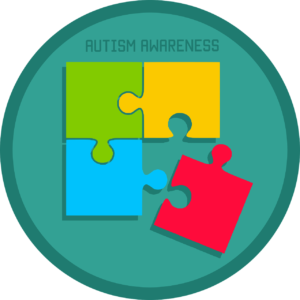Aspergers Syndrome
Frequently Asked Questions about Aspergers Syndrome
As with many conditions that don’t receive that much publicity, Aspergers Syndrome has a lot of questions that can be asked and not many answers out there. It is a condition that is relatively new in the world of medicine and there are lots of things that still aren’t known about the condition. If you are concerned that your child or somebody else you know may have Aspergers, then we have created some frequently asked questions to give you a better insight as to what it actually is. Remember that Aspergers isn’t generally a debilitating condition but it is still something that should be closely monitored and controlled so that things won’t get too out of hand.
I’ve heard about it but I don’t know anything about it. What is Asperger Syndrome?
Aspergers Syndrome is a form of Autism and is generally diagnosed as a condition with people who lack strong personal or communicative skills with other people, but have strong knowledge of certain subjects and can hold in large amounts of information about these topics. Asperger sufferers will also have a strict following of rules and routine and may also have a great difficulty in distinguishing between jokes and serious things, so may often take everything that is said to them as being literal. It is really common for the most distinguishing feature of somebody suffering Aspergers to have some obsessive traits in regards to certain topics and subject, and as we mentioned will be able to recite large amounts of information on these topics that can somewhat be amazing to people. This amount of information can then be related to the extreme difficulty in communicating with other people. You will find that people with Aspergers will have no difficulty in talking to people about topics that interest them, but won’t have the skills to maintain a conversation about a subject that has no interest or value to them at all They also may have a somewhat awkward walk which seems clumsy, and be fairly clumsy themselves when it comes to normal situations around people and other objects. People can sometimes see these behaviours as being ‘weird’ but having it diagnosed and properly looked after is important.
How can you properly diagnose such a condition?
Aspergers can be a difficult condition to correctly diagnose as it is sometimes very hard to detect when compared to other forms of Autism in children. Some early signs in children may come from faster than average development skills, such as higher levels of communication at a young age as well as higher levels of reading too when they are younger. This can make things more difficult as it can sometimes be labelled as a child being ‘gifted’ rather than actually having something wrong with them. It can sometimes then be difficult to truly diagnose a child with Aspergers until they are older, around 6 or 7 when parents and teachers can really notice the differences and other signs in the child. Some steps that are used to diagnose a child with Aspergers are:
- Having difficulty in socialising and interacting with other children
- Making limited amounts of eye contact with other children and people
- Facial expressions show a limited amount of change when talking
- They make friends that are either much older or younger than they are
- They don’t have many friends at all
- They don’t make note of items that would be of interest to most people
- They don’t congratulate winners if they are beaten
- They constantly interrupt when in a social situation
- They don’t engage in proper small talk
These are only a few symptoms to look out for; however there are many more that should be noted.
What treatment is there?
The best treatment for Aspergers is to get the child into therapy and have a therapist take them through their condition. The therapist can address things such as their poor social and communicative skills and help them through it. You should take your child to your doctor if you think it has Aspergers and your doctor will be able to best help you out and deal with the condition.



